News Articles

A hopeful time for Cryptosporidium research (link is external)
Boris Striepen of Penn Vet organized the First Biennial Cryptosporidium Meeting, bringing together researchers and clinicians from around the world to discuss the problems and progress around the parasite and…
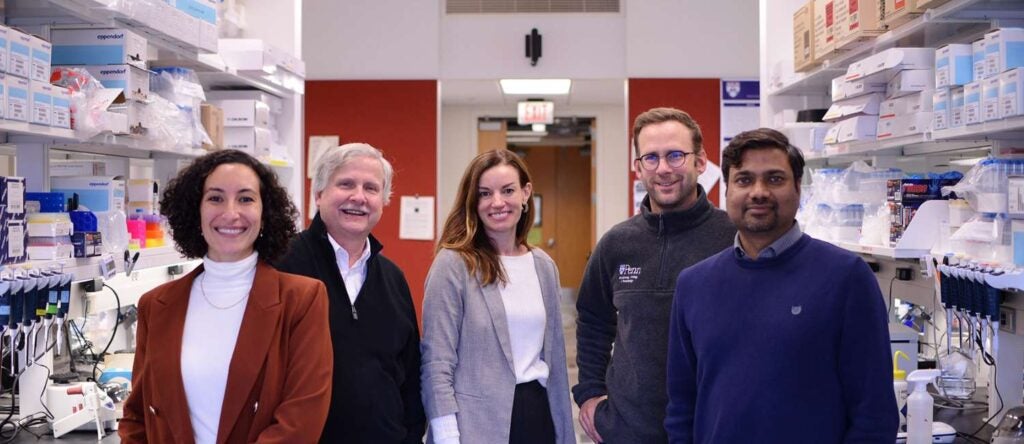
Uncovering the role of skin microbiome and immune response in cutaneous leishmaniasis (link is external)
Two new studies led by Phillip Scott of the School of Veterinary Medicine and Elizabeth Grice of the Perelman School of Medicine demonstrate how bacteria found in leishmaniasis skin lesions…
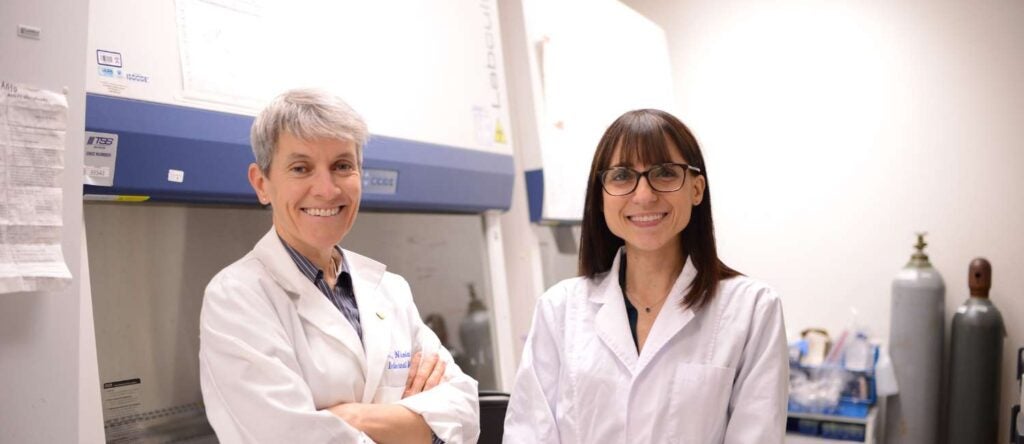
Study shows promise for iNKT cell platform to treat cancer (link is external)
Researchers from the School of Veterinary Medicine and Perelman School of Medicine have shown that invariant natural killer T cells from a healthy donor can persist in MHC-mismatched canines, demonstrating…
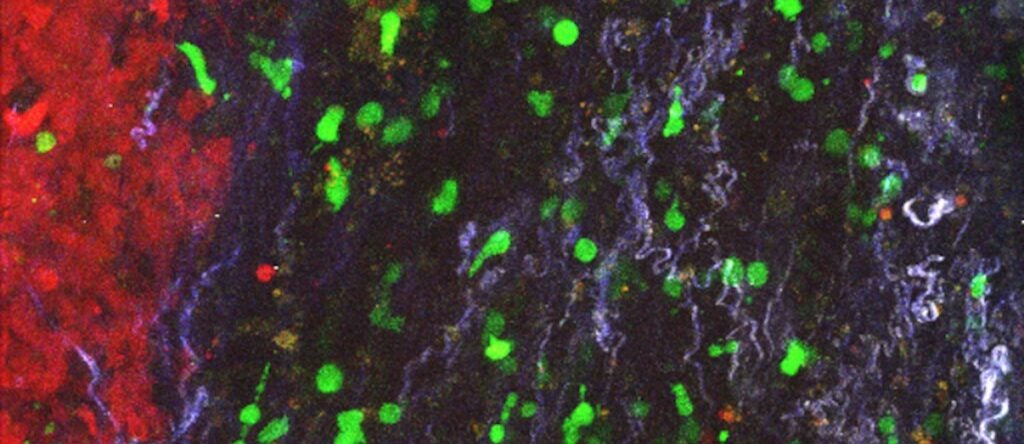
Removing the barrier surrounding solid tumors clears path for T cells (link is external)
Penn researchers uncover a new way to target solid tumors. Using CAR T cells to remove cancer-associated fibroblasts surrounding pancreatic tumors allows T cells to infiltrate and attack the tumor…

Genetic switch turns tumor suppressor into oncogene in colorectal cancer (link is external)
Researchers from the School of Veterinary Medicine have shown that an enzyme that suppresses early-stage colorectal cancer switches to become an oncogene as the cancer progresses.
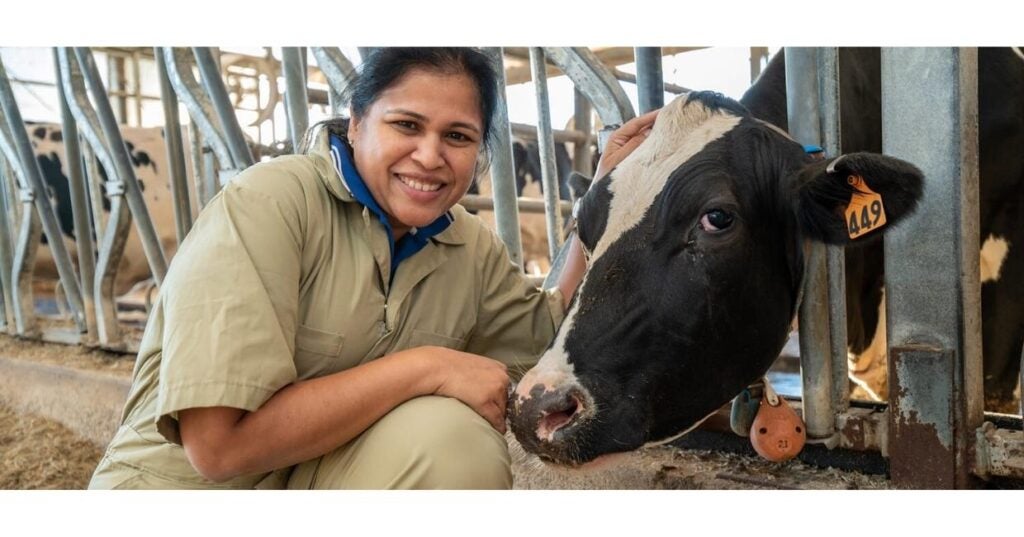
Could we breed cows that emit less methane? (link is external)
In a new study, researchers from the School of Veterinary Medicine identified attributes of low-methane-emitting dairy cows that could be used as targets for selective breeding.

Harnessing an innate protection against Ebola (link is external)
In their evolutionary battle for survival, viruses have developed strategies to spark and perpetuate infection. Once inside a host cell, the Ebola virus, for example, hijacks molecular pathways to replicate…
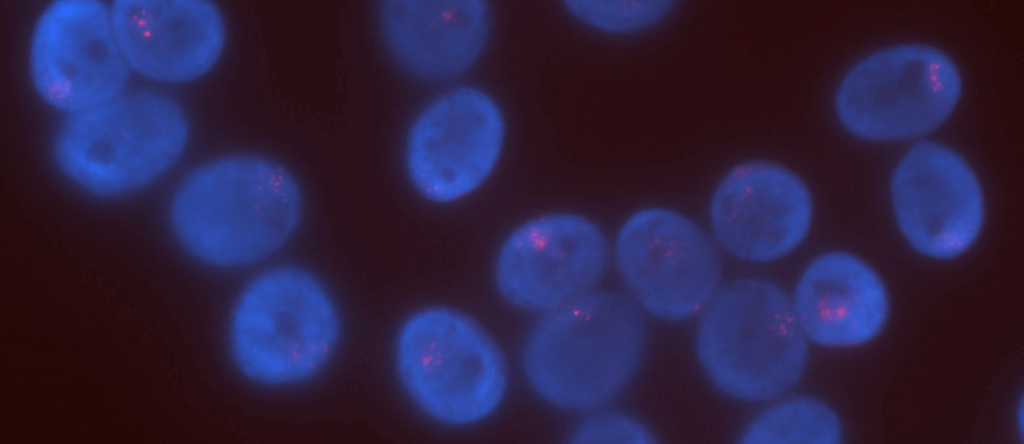
How sex differences may influence lung injury (link is external)
Comparing lung cells from male and female mice, Penn Vet scientists found gene expression differences that may explain why older males are at a higher risk than females for worse…
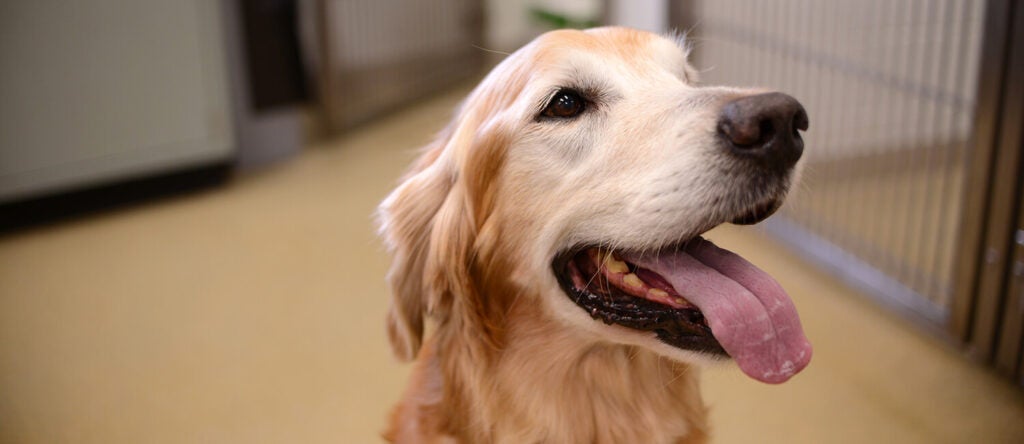
NIH-funded canine immunotherapy data center charts a path toward transformative therapies (link is external)
With support recently for five more years, Nicola Mason of the School of Veterinary Medicine and Qi Long of the Perelman School of Medicine hope their work leads to new…
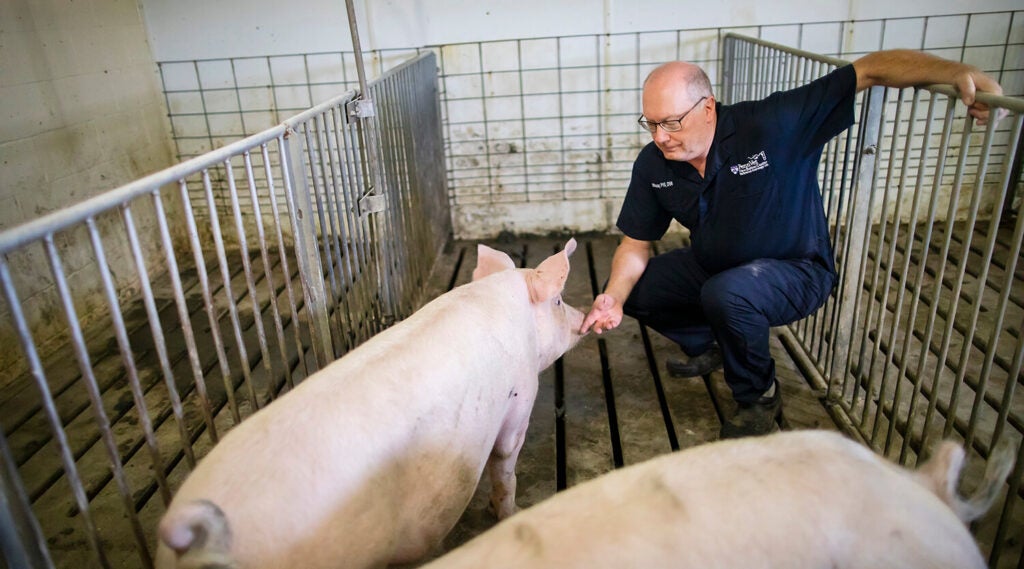
Supporting agriculture and a safe food supply (link is external)
Caring for a cow with uterine prolapse is not a task that a veterinarian can accomplish alone. The physicality and teamwork it demands makes it nearly impossible to sustain the…
Sort By
- Research Laboratories (1)
- ASMG Laboratory - Microbial Genomics (2)
- Lengner Laboratory (2)
- New Bolton Center PADLS (3)
- Anguera Laboratory (4)
- Wang Laboratory (3)
- Puré Laboratory (1)
- Ortved Orthopedic Regenerative Medicine Laboratory (1)
- Wolfe Laboratory (1)
- Lennon Mucosal Immunology Laboratory (1)
- Dou Laboratory (3)
- Equine Pharmacology Research Laboratory (1)
- Hunter Laboratory (4)
- Brinster Laboratory of Reproductive Physiology (1)
- Sunyer Laboratory (1)
- Harty Laboratory (4)
- Mason Immunotherapy Research Laboratory (2)
- Scott Laboratory (1)
- Marshak Dairy (1)
- Vaughan Laboratory (1)
- Research Institutes (2)
- Research Programs (1)
- Research Centers (2)
